SARANDA
Manas Kumar Bindu, 1974 Mechanical Engineering
CHALTE CHALTE:
Covering the vast land in Jharkhand and Orissa, ‘Saranda’ in their local meaning it is ‘the land of seven hundred hills’ and is spread over around 900 sq. km and has mesmerised and fascinated nature-enthusiasts for decades. The spectacular sunset, here against the backdrop of tall dark silhouettes of Sal, would simply make you gaze wide eyed as the sky dons the hues of crimson, orange and grey, before the flaming ball of fire calls it off for the day. That ‘Seven hundred hill’ forest nurtures varieties of flora & fauna like a Mother Nature within thick canopy of a great forest. The location I lived, on a hill, for many years, in Saranda, was at 910 metres above mean sea level, mostly forested with huge Sal trees. There were also Mohua, Mango, Peepal, Scholar trees standing around, and also innumerable variety of birds, large butterflies not seen earlier, flying squirrel lived near our small township.
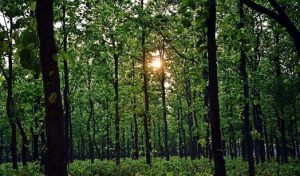
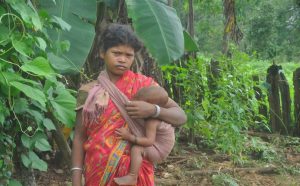 Deep in the forest, Elephants, Sloth bear, Sambars (a kind of large Asian deer), Porcupines, and small deer still live happily. Number of springs, streams and river Koel and Koyna started their long journey from near our location.
Deep in the forest, Elephants, Sloth bear, Sambars (a kind of large Asian deer), Porcupines, and small deer still live happily. Number of springs, streams and river Koel and Koyna started their long journey from near our location.
This forest and our small mine township on the top of hill, attracted many well known persons: Ranjit Mullik (film actor), Bina Batobbal (actress daughter of Pradip Kumar) and some accompanying them were Sabyasachi Chakraborty (actor) and his team, Ashim Chatterjee (better known as ‘Kaka’) with Anuradha Boudi, Shakti Chattopadhya with two friends, and our own Sudip (Mukherjee) with madam Tapati (Mukherjee). Ranjit Mullik, during chat with us told that his daughter’s name was given from the name of river Koel.
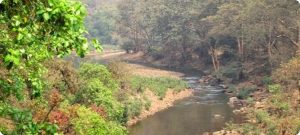 Koyna River
Koyna River
It was my great fortune that all above (except Sh. Shakti Chattopadhyay) were my guest and visited my mine residence. Another Person, I must recall, famously known locally as ‘Bistu Babu’, Shri Bistu Dutta, who played for Mohanbagan during the late 40’s and early 50’s, also settled at Barajamda, a small town at the foothill. After his football career, drawn by love towards forest, he travelled to and settled in this town. I shall talk about him latter in this article. I could not meet Sh. Shakti Chattopadhyay, as he wanted to visit, without people knowing it. He stayed for two days in a tribe village near our clear water dam. He did not ask for accommodation in our guest house. I knew about his visit through the village sarpanch and a trade union leader.
After my graduation, I underwent a year-long training including at- site engagements with various projects in Madhya Pradesh, Bihar, and Orissa. On completion of all these customary protocols, I was asked to join project department of Bokaro Steel Plant. By next week, me and Pradip Pattnaik (a Mechanical Graduate from Cuttack) were asked to report at a project located at Mehgatuburu. We were given the travel plan and documents related to the new project.
After staying overnight at a Jamshedpur hotel, early morning we boarded a passenger train at Tatanagar. Passing through remote the countryside and rocky plateau for about four hours, we reached Barajamda Station. As per schedule, one Jeep was waiting there to pick us up. Then it was an amazing and long road journey through lush green thick forest and curved ghat – road finally took us to one hilltop camp cum guest house. We were received by the caretaker who took us to a camp room of asbestos sheets. When we got freshened, the caretaker called us for lunch.
The next morning, the geologist, looking after the exploration work of the hill, came to take us to the site to have a look around the deposit.
Iron Ore:
Here I would like to take a break to explain regarding formation of Iron ore deposit in the area. Iron ore occurs from top of these hills down below and raised through open cut method. Here the composition of ore is in the form of Fe2O3(An oxide of iron–Haematite) with little impurities (gang materials) of Silica (SiO2) and Alumina (Al2O3). An elaborated process involving Drilling, Blasting, Excavation of large sized ore boulders, bulk transportation by 50 tonne dumpers, crushing, massive conveyer network, segregation of sizes through various stages of screening and then stacking the products at designated stockpiles finally for wagon loading in Railway rakes.
Our job responsibility during that time was to maintain five Atlas Copco Core Drills, Three BEML bulldozers and about six four-wheel drive jeeps. During those days the priority was to drill the hill at designated grid locations given by our surveyors. The drilling points marked were generally in a grid of 50 metres. While drilling, the hollow drill rods get filled with broken rock particles in the form of a solid stick of two inches diameter drawn inside the hollow rod. These cores are then carefully taken out and kept in a library marking / logging with occurrence as per depth and locations. Now dust samples are collected from these cores by the Geologists after recording log details and then sent to chemical laboratory for analysis. Now with the chemical data, excavation plan is drawn up for quality product mix.
Since no infrastructure was available with us, we were fully dependent on locally available machine shops, to get the drilling on. At that point of time, through my frequent visits to foothill machine shop, I came across ‘Bistu Babu’
Bistu Babu:
‘Bistu Babu’, Shri Bistu Dutta, I spoke an introduction about him earlier in this article, was a renowned person in that locality. Not only that he played and loved football, he had a love for forest also. For his own livelihood, he setup the machine shop. Along with his own life, his adventures in the forest gradually became an obsession. Upto late 40’s, hunting at Saranda forests was not prohibited though there were tiger habitats. Occasional killing of tribal by tigers, in deeper forest villages were reported. Now a dangerous idea took over Bistu Babu. He started reading books on hunting and also met a few experts of the subject. When he gained some confidence, he purchased one suitable gun. After that, in pursuit of killing man-eaters, his operations began. It’s my bad luck that I could meet him and became friendly to him long after the ban on hunting was imposed. He narrated all above during our many conversations. Few largely framed photographs of Bistu Babu, putting one foot over killed tigers, hung all over the walls of his large drawing room. He took me many a times with him in deep forest explorations and we stayed overnights in forest bungalows. Buddhadeb Guha, the renowned writer used to stay at his place whenever he visited this forest villages.
Bistu Babu left for his heavenly abode in 1988.
My good old memories with him are my lifelong treasures.
The Hazards:
It was during the summer of 2002, everything was normal, and people were committed to meet much higher level of production and dispatch those to steel plants at Bokaro, Rourkela, Bhilai. By this time, the newly formed Jharkhand state was experiencing ultra left activities, specially in and around tribal populated forest. However, being a public sector undertaking, our activities and dispatch was never affected. Related to the issue, in some occasions, we were called to attend meetings, conducted by the Jharkhand state administration at Ranchi and Chaibasa.
Everything was cool till one day morning at around 9.30 a.m. on a summer day, when seven young people with ultra left outfits appeared and with a little conversation with our engineers at plant, abducted five engineers and took them to a place in wilderness, nearly five kilometers away, deep inside forest.
Immediately the information reached our central office. The C.I.S.F. commandant, responsible for security of the mine and infrastructures, rushed to my office for immediate action plan. SAIL corporate office, raw material division, CISF headquarter at New Delhi, and CM Office, Ranchi were also informed.
Ticking time, every minute was getting longer and longer. Police Superintendent’s telephonic assurance for rescue efforts from the district headquarter at Chaibasa, 100 km. away, could not relieve us from our terrifying worry which gripped us by the time. All equipment’s functions and operations came to a halt as fear of unknown gripped all the employees. Everyone was praying for some communication from the abducted engineers, from jungle, if they can use their handheld walkie-talkies. While I was attending various phone calls including from wives of those abducted, I was informed by the CISF commandant that wireless message from one of the engineers could be traced by a jawan from the farthest post of our lease area informing that they are released by the ultras. A message that ’They are coming back’ went all over with relief from worries.
That was an ordeal of about three hours. Everything then returned back to normal. I was advised to move and report at Chief Minister’s Office, Ranchi.
The next morning the Chief Minister and DGP including me, flown down to our place. They addressed all executives and trade union leaders in a quickly arranged meeting in our officer’s club and declared posting of three battalions of armed forces.
What I could gather now that a total of four CRPF camps are operating in the area.
Bnaku
The next hill just joining our township is Bolani hill. The border line of Orissa and Bihar passes almost through our town. The Bolani hill in the state of Orissa is also rich in haematite iron ore, owned by Bird and company, which was also a source of ore to Durgapur Steel Plant. During sometime in 1980, as a result of restructuring, Bolani deposit was handed over to SAIL. Once in SAIL, relation started improving between the mines. Rathin Chatterjee (bec74 mining) was working at Bolani mines.
At that time both myself and Rathin (Bnaku) re-discovered each other. Got closer with the passing of time and started visiting each other. Time moved on and both of us continued in our respective operations and sometimes working together.
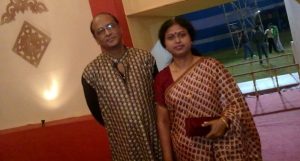 16 October 2013
16 October 2013
Then I got married. My wife was a regular English teacher in Kendriya Vidyalaya (Central School). Both of us had our own schedules to maintain both home and work. Till we could find out a suitable cook, she had no other option but to do it herself. One day Rathin visited us early in the morning for some urgent help from our mine. I do not remember now, what was the urgency. My wife offered us with tea. Rathin thought something and stood up suddenly. He moved towards our kitchen and found that my wife was cooking on a electric heater. He returned and started hurling ‘GALEE’ on me saying ‘you cannot even provide cooking gas and stove to Swapna. She has to cook for you and rush to her school. You are not worthy to be a husband’. He did not miss the opportunity to shower ‘galee’ on me.
It was a sweet surprise to us next morning when we discovered a person, carrying a cooking cylinder and stove, reached our residence. It was Rathin who bought the kit in the name of one of his staff on the same day from his mine-owned co-operative stores.
Sadly, Rathin also left for his eternal journey with heavenly peace.
Rathin will be missed so much.
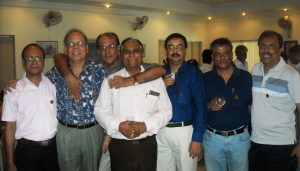
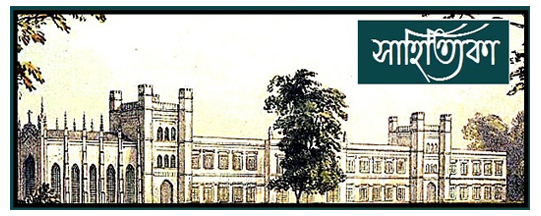
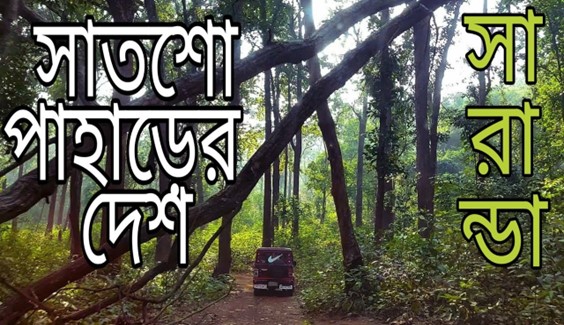
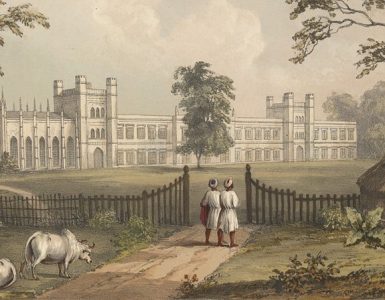
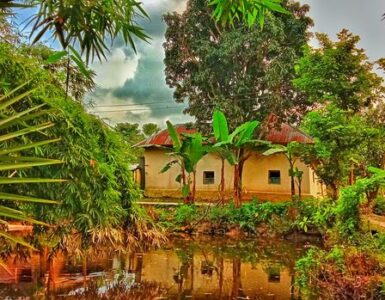
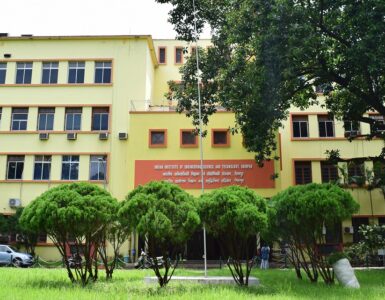










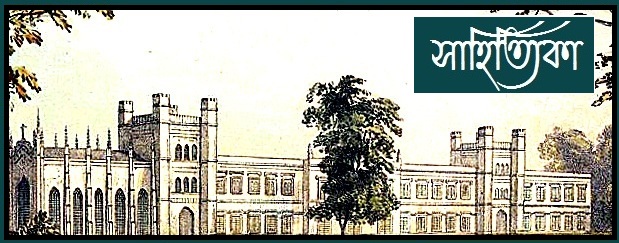
Very interesting write up. You carried out professional life along with adventures in hill & Forrest.